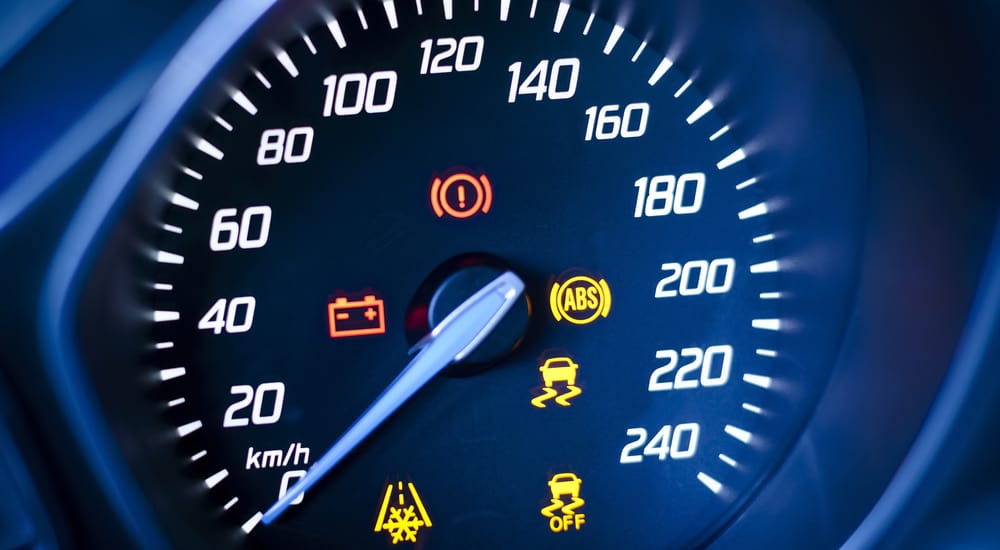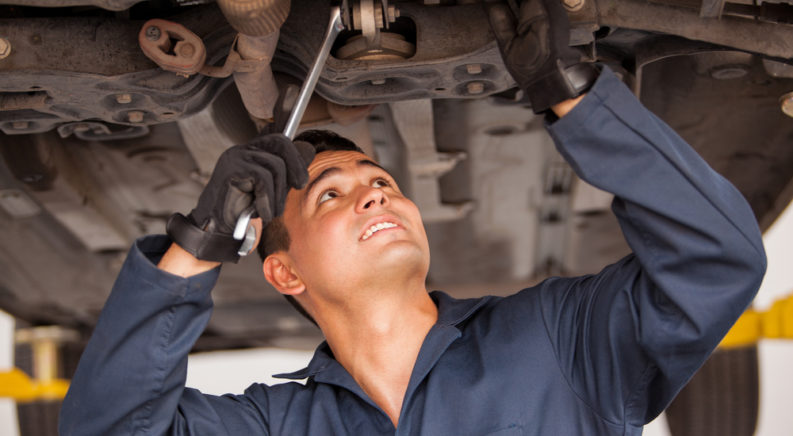Time for your next car inspection? It can seem like a scary, tricky, and even inconvenient situation. However, there are ways to improve your chances of passing the inspection, simply by checking for common concerns and addressing them in a timely fashion. From the most basic factors like working lights and proper tread to more complicated concerns like engine and brake health, we’ll discuss what parts of your vehicle to check out before heading out for a car inspection. To make the process even more seamless, you may also want to consider choosing your local car dealership for your next inspection.
Check for Some of The Basics
Lights
In order to pass a car inspection, you’ll have to ensure that all of your lights are in working order. This includes the obvious headlights and taillights, but also includes directionals as well. To properly check each light, have someone stand outside of your vehicle while you test out each light. If any are not working, simply replace them before your inspection.
Tires
Tires are one of the first things that will be checked during a car inspection, so it is important to make sure that each tire meets the minimum tread requirement before heading over for an inspection. A popular method to check the tread of your tires is the “Penny Trick”. Simply place the penny with the top of Lincoln’s head down and if the top of his head is not covered, your tire tread is too worn. While looking at your tires, you’ll also want to check the wheels for any corrosion or damage.
Windshield & Wipers
It is important that your windshield is free of any cracks or excessive chips, as this will often lead to an automatic failure of your car inspection. Check your windshield for any imperfections and fill any small chips or cracks if needed. Any chip or crack that is too large may not be fixable, and you’ll want to look into replacing the windshield before trying to pass an inspection. While checking your windshield, you’ll also want to ensure that your windshield wipers are functioning well and do not need to be replaced. In the event that they do need to be replaced, your local dealership will probably have some right on hand and can simply add them to your service and may even install them for you.
Possible Leaking
Excessive leaking that has been collecting around or under your vehicle when parked is a sign that something could be wrong. If this is the case, you’ll want to have this issue diagnosed and addressed at your local service center prior to your inspection.
Body of Vehicle
Before your next car inspection, check the body of your vehicle for any rust, holes, or damage. The includes the inside of your vehicle as well, especially the floor area of your vehicle and rocker panels. While these are typically one of the first things you’ll notice about your vehicle, it’s still important to check for any new occurrences before a car inspection.
Warning Lights
 Don’t head out for an inspection with warning lights signaling on your dashboard. If any warning lights are present, take your vehicle to your local dealership to have them read, diagnosed, and then have the related problem take care of. This is your vehicle’s way of alerting you of a concern, so do not ignore these lights when present.
Don’t head out for an inspection with warning lights signaling on your dashboard. If any warning lights are present, take your vehicle to your local dealership to have them read, diagnosed, and then have the related problem take care of. This is your vehicle’s way of alerting you of a concern, so do not ignore these lights when present.
Keep an Eye Out for The Not So Basics
Brakes
Brakes are an important feature on your vehicle and one that won’t be overlooked during an inspection. You’ll want to be extra conscious of any changing sensations when using or releasing your brakes, as well as any concerning sounds that may be present. Brakes that feel too spongy or too hard need to be serviced, and any grinding or squeaking noises should also be promptly addressed. You’ll also want to test your emergency/parking brake to ensure that the vehicle will not move with only the brake on and while applying slight pressure to the gas pedal.
Under The Car
It may seem inconvenient, but it’s always a good idea to take a look underneath your car before an inspection. You’ll want to look for any loose or dangling parts, significant rust, or corrosion. If you can spot the brake lines, this is a good opportunity to double check the health of your brakes by checking for rusting or wear in this area. Any areas of concern should be addressed as soon as possible. Don’t wait until your inspection to discover a possible repair.
Under The Hood
Much like under the car, you’ll also want to check under the hood for corrosion, rust, and loose parts. You’ll also want to double check this area for any possible leaks. Be sure to check all fluid levels and top off any if necessary. If your vehicle is overdue for an oil change, you may want to schedule one with your local dealership prior to taking your vehicle in for a car inspection.
Additional Concerns
There are a few common concerns that your local dealership will check for during a car inspection. While you may not be able to easily check for all of them yourself, it is a good idea to stay aware of them. An important part of many car inspections is an emission test, which will test the emission system of your vehicle for harmful pollutants or contaminants. Other parts of your vehicle that will be inspected include your exhaust system, steering, and suspension.
Be Ready with Documents
To make the process go smoother and more efficiently, have all of your necessary documents ready ahead of time. Depending on what state you live in, the requirements may differ. However, for many states you’ll need to have your insurance card and registration present at the time of the car inspection. Many dealerships will grab this information from you before beginning your inspection.
Check for Deals in The Area
Car inspection prices are fairly standard, however every now and then you can find a special running with your local dealership for reduced pricing on your next car inspection. If your vehicle needs any maintenance or repairs before it can inspected, it’s also a good idea to check for deals from your local service center that can help reduce these expenses.
Visit Your Local Dealership for a Trustworthy Inspection
There are many places that you can take your vehicle to for an inspection. The gas station around the corner, a chain inspection company, or a shop. However, you may want to consider taking your vehicle to your local dealership for your next car inspection. Dealerships often run great promotions on a variety of their services and have an exceptionally well-trained and fully certified service center. Typically, the technicians at your local service center are among the best in the area due to their constant training and the variety and volume of vehicles that they work with. Your local dealership may even allow you to schedule your next service or inspection online. While you’re on their website, you can conveniently check for any applicable specials and incentives, as well as take a look at their other services. So, when it’s time for your next car inspection, take a close look at your vehicle, address any concerns, and head to your local dealership with paperwork in hand!

